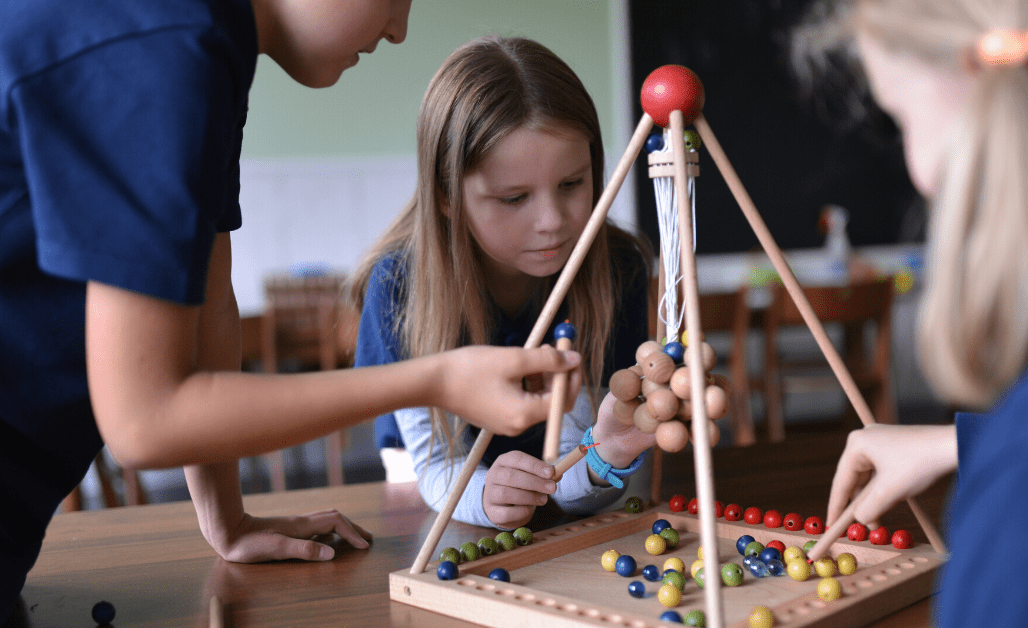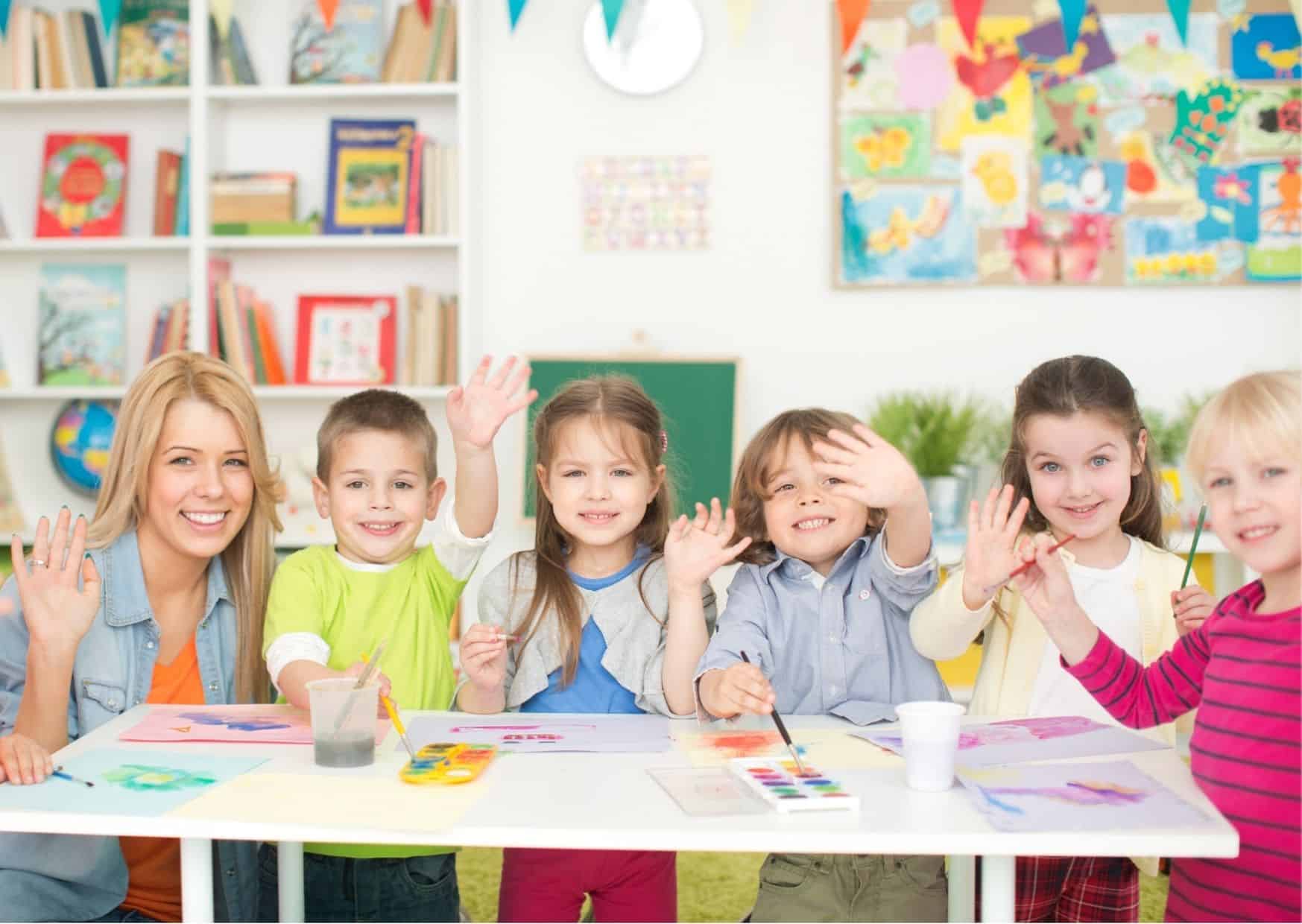School readiness is a balance between the requirements posed by the school to a child and his / her potential physical, social and mental development, emotional-motivational and perceptual-motor. Whether the child will be susceptible to learning at school, depends on hisdevelopment in many areas. That is why school readiness comes to our workshop. Find out everything you need to know about it in this publication.
School readiness? It is extremely important to purposefully support the child's progress in such a way that no area is neglected or overlooked, and the development process was harmonious. This is to be ensured by the one-year obligation to prepare for school education carried out in pre-school groups.
School readiness - curriculum
If you are wondering when your child is ready to go to school, we have specific guidelines for you. The core curriculum for pre-school education describes: "the process of supporting the development and education of children", guaranteeing them: "the opportunity to play and learn together in safe, friendly conditions and adapted to their developmental needs". In addition, it sets the goals of teaching and educational work for teachers, leading to achieve the necessary competences in all the above-mentioned areas, which is crucial, for the child to reach school readiness.
· See also | Bilingualism. Everything worth knowing about her
It also imposes an obligation on teachers to conduct careful pedagogical observation, allowing for the analysis of the child's readiness to start education in grade I. Interpretation of the results provides teachers with detailed information in terms of skills already achieved and those that still need to be worked on, forming the basis for the creation of individual correction and development programs. The diagnosis and then effective didactic and educational interactions are to lead to the child's achievement optimal skills in the scope of competences necessary to start learning.
School readiness - physical development
In terms of physical development, it has a significant impact on functioning at school overall health of the child. A student in the first grade should have adequate strength and resistance to fatigue. Poor health condition causes rapid weariness, fatigue and a reduction in the overall efficiency of the child, regardless of the type of activity undertaken. It also has an impact on educational results due to student absences from classes. Another essential aspect is mobility. Its level should be high enough to guarantee the child independence in terms of self-service activities (dressing, eating, using simple tools). Correct development of sensory organs and articulators has a close, direct relationship with achieving success in school.
Vision, hearing or impaired motor coordination hinder the receipt of information and the fulfillment of requests and orders addressed to the child. Incorrect pronunciation often causes communication problems in relationships with peers and adults.
Properly running is of great importance in the process of educating a child function integration perceptual-motor. In the course of schooling, it is largely based on visual and auditory perceptions.
Analysis - breaking down impressions into basic elements and synthesizing - reassembling and interpreting them (visual and auditory) conditions the acquisition of writing and reading skills. A child starting education in the first grade should learn the ability to separate sentences into individual words, words into syllables and sounds, and to create entire words from individual syllables.
Laterality is extremely important - that is, the process of shaping the domination of one side of the body over the other during development, concerning the work of arms, legs and eyes.
School readiness - manual skills
Watch your child draw and write. School readiness is also the ability to use writing and art tools related to their proper grip and effective use. It is mainly about the ability to adjust the pressure of the hand muscles while writing and the overall dexterity and efficiency of hand movements. Otherwise, the movements will be slow, dissonant, stiff, angular and not very precise. There may also be agitations, i.e. unnecessary movements to relieve excessive tension, e.g. moving the tongue while writing or drawing.
School readiness - speech development
An extremely important aspect of school maturity is speech development. The child should use conjugated speech, that is, have an appropriate resource of words and concepts, and speak correctly in terms of articulation and grammar. These skills are essential for formulating messages in such a way that they can be understood. It is also important that he has an appropriate level of speech understanding that will allow him to receive and correctly interpret messages sent by others
School readiness - development of operational thinking
A child starting education in the first grade should be able to direct attention to the indicated object and maintain it for a long time, and his thinking should be characterized by the ability to use information so that he understands simple concepts, rules, rules and regularities. Essential in the process of developing operational thinking is to try to solve problems on your own, to look for different solutions, and to plan the next steps.
School readiness - maturity and awareness
First grader gradually learns to deal emotionally with the evaluation situation, adequately - react in a mature way to your own and peers' successes and failures. He understands to some extent the importance of duty and responsibility for himself. He remembers to do his homework and prepare for the next day. He practices reading, although he would prefer to have fun. A child who is mature enough to start education at school tries to overcome difficulties. He makes an effort despite his reluctance. He looks for a solution to the task even if he does not guess it at first.
Dissatisfied with the results of their work, they do not get discouraged - makes more attempts. She is interested in getting to know the world and acquiring knowledge. Can be interested in specific content for longer. At this stage, the first specific interests and a desire to deepen them appear. The process of shaping mature social relations also begins.
School readiness is also characterized by the fact that a child begins to understand social rules and norms and becomes able to assimilate and obey them. He realizes that he is part of the group, thanks to which he perceives the messages directed by the teacher to the class as directed also to himself. He has the ability to compare himself with others, which allows him to define himself against the background of the group and develops self-esteem. He is guided not only by his own good, but also the good of the other person or group, which makes him capable of acting for the benefit of others.
School readiness - parental support
Just uniform educational impact of the family environment and kindergartens will enable the child to attain the maturity necessary for success in primary school. Therefore, it is important to involve parents in the process of shaping the knowledge and skills that a first-class student should possess.
School readiness and the level of parents' knowledge - despite the wide availability of materials and studies, it is still insufficient and is based mainly on partial information obtained from various sources, not necessarily ready to provide them. Most of the questions posed to teachers concern the child's competence in didactic, specific and measurable skills, to which the answers are expected: "yes - no", "can - cannot".
Emotional and social maturity it goes to the background or is completely ignored in the considerations of the child's readiness to start school, and yet it is an important factor in achieving success in class I. Therefore, teachers should support not only the child's development, but also show the parents the direction so that together prepared preschoolers as fully as possible for the school challenges awaiting them.
· see also | Can preschool education be the key to success in adult life?
One of the ways motivating parents to support their children in terms of achieving school readiness, a letter signed by the future student may be addressed to them.
Joanna Goc-Matyskiel, kindergarten teacher




